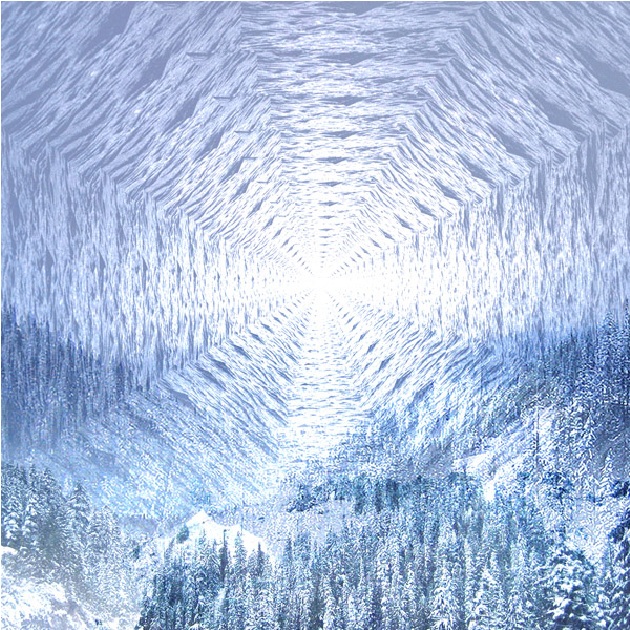Triumphs are fun, we can all agree on that. From Arcade Fire’s rise as a small Montreal band into one of the world’s biggest and best indie rock acts, to Radiohead’s growth as a seminal art-rock band after their vastly mundane debut, these are the kinds of stories we as music enthusiasts crave, whether we would like to admit it or not. With the rise of the internet, our minds have become stimulated to maximization; it becomes difficult to keep up, and there really is nothing wrong with that. It simply makes these triumphs special in bigger ways. Recommendations have been circulating around my life more than they ever have, because there this a mutual goal between friends and peers to share great music with each other. My introduction to Mesita was his 2011 album Here’s To Nowhere, by recommendation in fact. It was apparent that this man few people recognized outside of small pockets of fans knew what he wanted to do and could do a very good job at it. For those reading that have yet to experience this artist before, Mesita is the one-man bedroom project of Coloradan James Cooley that started in 2008, and since then he has released three records, his most recent being The Coyote. In 2012, Mesita has gone pretty far in terms of recognition and overall consummation of his music, but The Coyote deserves to be Mesita’s triumph because that’s absolutely what it sounds like.
Mesita’s guitar work is reminiscent to that of Radiohead’s, but general influences are not the easiest to detect from his music. Sure, there are bits of Brian Eno here in there, but it’s easy to jump to his material for most sorts of experimentalism. Besides these small similarities, Mesita is sort of in its own territory at the moment, which is one of his most refreshing qualities. The Coyote opens with “Ken Caryl,” a song that finds Cooley recollecting the area where he grew up and it builds to this booming rejoice of a topic most would tone down or resort to nostalgia without context. The contemplation of moving out and being on your own is a typically large mental holiday and Mesita definitely nails that with the track’s monumental sound, a take on music that is sort of new ground for him. Here’s To Nowhere found him exploring a smooth palate that rested over his solid vocal presence, while on here, most of the material is turned up to 11 and achieved to a nearly flawless success. Mesita explores a large array of tracked instruments better than most bedroom musicians could handle, making the listener forget this wasn’t even produced in a studio, which says a lot about his audio engineering skill and how much a studio even means to a quality production process.
Mesita’s songwriting is also not to be ignored. On much of the album, Cooley builds the songs into these extensive, complex pieces of music, where the album is almost divided between lyrical and instrumental chunks. “Everything is Burning” is a track that hectically enters the ears with abrasive synths and dissolves into a celebratory rant about stress, laying down attempted calmness upon minor chaos. The tumult of the song eventually fades half-way through the song, where control is achieved in beautiful chord structuring and chiming rhythms. Similar occasions are in play on songs like “You or the City,” “Into the Wind,” and “Out For Blood,” where the opposite happens; there is a build up into these bass drum-loaded environments that harken to tribal music, it almost feels like Cooley’s antithesis to dubstep.
Amongst musicianship and production, his vocals and lyrical consistencies have also improved over Here’s To Nowhere. The song “Onward Upward” takes point as a singable anthem for what government takes from its citizens, driven by simple yet respective lyrics. The moment “Onward Upward” comes to a close, Mesita takes a darker approach with “Out For Blood,” basically contemplating how much identity actually means in the end, especially to loved ones. Both songs have similar moods lyrically but take two distinct vocal styles, from the high-soaring croons of “Onward Upward” to the depressive, understated moans of “Out For Blood.” Mesita’s ability to mix and mingle in different song types yet stay consistant is very much the contributor to the force of The Coyote. As the album builds from this giant-sounding spree of fun and interesting sounds, it riddles down to these points where Mesita feels genuinely worried. “Search for Meaning” and “Endless Build Into Nothing” are the tracks that feel that very much outside the rest of the record but appropriately so. “Search for Meaning” is not something we’ve heard from Mesita before. At first, it’s eerily sour, then breezy, then he breaks into this alarmingly grand blues melody while repeating the phrase: “Am I wasting my time?”
There is a very post-teenage feel to this record. Most of the composed subject matter involves themes like moving out, questioning yourself and your capabilities, being seduced by the city, and most of all, creating your own future. The Coyote, in the context of its own time, is a comment on what it means to be struggling at such an young age, and Cooley has even admitted that his journey consisted of a lot of going through retail jobs and moving from place to place. In such a time that allows people to release music so freely, it’s also shame to see certain efforts to get lost in the shadows of music blogs. Because Cooley is so aware of his situation as well as the world’s, it makes The Coyote that much more genuine and hard-hitting.

